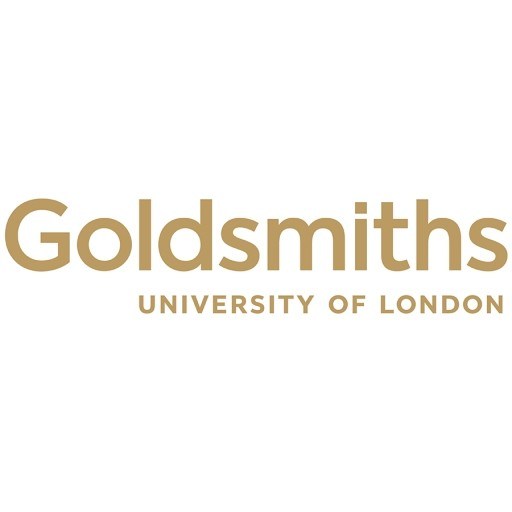Photos of university / #ucl
The MSc in Behaviour Change at University College London offers an in-depth exploration of the scientific principles underlying human behaviour and the practical techniques used to facilitate positive change. This program is designed for students interested in understanding how to influence and modify behaviours across various settings, including health, environment, finance, and public policy. Through a rigorous interdisciplinary curriculum, students will learn about the psychological, social, and behavioural sciences that underpin change processes and develop skills in designing effective interventions. The programme combines theoretical knowledge with practical application, providing opportunities for students to engage in research projects, case studies, and real-world problem solving. Emphasising evidence-based approaches, the course covers key topics such as motivation, decision-making, behavioural economics, and digital interventions, equipping graduates to work in diverse sectors including healthcare, government, non-profits, and private industry. The programme also offers opportunities for collaboration with leading researchers and organisations, fostering innovative solutions to contemporary behavioural challenges. Graduates will be prepared to design, implement, and evaluate behaviour change programmes, greatly improving public health and wellbeing, environmental sustainability, and societal outcomes. The MSc in Behaviour Change aims to cultivate critical thinking, analytical skills, and a foundational understanding of behavioural science principles, making its alumni valuable contributors to policy development, programme delivery, and innovative research initiatives worldwide.
This cross-disciplinary Master's programme will:
- Equip students with the ability to critically appraise theories, methods and evidence for understanding behaviour and behaviour change in a range of contexts
- Train students in the design, implementation and evaluation of behaviour change interventions
- Enable students to support the translation of evidence into practice across disciplines and sectors.
Students undertake modules to the value of 180 credits.
The programme consists of four core modules (75 credits), three elective modules (45 credits) and a research-based dissertation (60 credits).
A Postgraduate Diploma, four core modules (75 credits), three electives (45 credits) is also offered.
A Postgraduate Certificate, three core modules (60 credits) is also offered.
Core modules
- Changing Behaviour: Intervention Development and Evaluation (30 credits)
- Theories and Models of Behaviour Change (15 credits)
- Behaviour Change: An Interdisciplinary Approach (15 credits)
- Research Methods and Evidence for Global Health (15 credits) *
- Research Project (60 credits) **
* MSc and PG Diploma Only
** MSc Only
Optional modules
Students choose three of the following:
- Health and Wellbeing (15 credits)
- Transport Behaviour Change: Theory and Practice (15 credits)
- Energy, People and Behaviour (15 credits)
- Making Policy Work (15 credits)
- Wellbeing in Buildings: Theory and Practice (15 credits)
- Social Cognition: Affect and Motivation (15 credits)
- Social Psychology of Risk (15 credits)
- Public Ethics (15 credits)
- Consumer Behaviour (15 credits)
- Judgement and Decision Making (15 credits)
- Human Factors and Digital Health (15 credits)
- Persuasive Games (15 credits)
Dissertation/research project
MSc students undertake an independent research project, culminating in a dissertation of 8,000-10,000 words. Projects will also be presented at a mini-conference.
Teaching and learning
The programme is delivered through lectures, seminars, small-group and project work and independent study. All tutors are highly experienced, internationally recognised researchers and/or practitioners in behaviour change from a range of disciplines, including: health, transport, built environment, digital technology, policy and ethics. Assessment is through coursework, unseen examinations and research projects. Although not formally offered, we can support students to find and complete a work experience placement as part of their programme.
- 5 year Specialist Diploma with an overall mark of 4.5/5.0
- Bachelor's degree with an overall mark of 4.5/5.0
- Test of English as a Foreign Language (TOEFL). Score of 100 overall with 24/30 in reading and writing and 20/30 in speaking and listening
- British Council International Language Testing System (IELTS Academic Version). Overall grade of 7.0 with a minimum of 6.5 in each of the subtests.
The financing options for the Behaviour Change programme at University College London (UCL) encompass a variety of funding avenues tailored to both domestic and international students. Prospective students are encouraged to explore UCL’s comprehensive scholarships and bursaries, which may include merit-based awards and financial aid schemes designed to support postgraduate learners. Additionally, students can consider government-funded loans available in the UK through the Student Loans Company, which provide financial assistance to eligible students pursuing master's programmes. International students often have access to scholarships such as the UCL Global Scholarships or departmental awards that mitigate the cost of tuition fees and living expenses.
Furthermore, UCL collaborates with various external organizations and research councils that offer funding opportunities, especially for students engaging in research components of the Behaviour Change programme. Students are advised to investigate sources like the UK Research and Innovation (UKRI) or charitable foundations that support health-related behavioural research. Some students may also utilize private loans or sponsorships from their home country or employer-sponsored training programmes, if applicable.
Tuition fees vary depending on a student’s residency status, with international students typically paying higher fees than their UK counterparts. The university provides detailed fee structures on its official website, along with guidance on payment plans and deadlines. Additionally, students are encouraged to seek advice from UCL’s Student Funding Office, which offers personalized support in identifying suitable financial aid opportunities and navigating the complex application processes. Overall, financing a Behaviour Change degree at UCL involves multiple options aimed at reducing financial barriers and enabling students to focus on their academic and research pursuits.
Behaviour Change at University College London is a specialized program designed to explore the principles, theories, and practical applications of changing human behavior. This program aims to equip students with the skills to develop effective interventions and strategies that promote health, wellbeing, sustainability, and social outcomes. The curriculum covers a broad range of topics, including psychology, public health, social science, and data analysis, providing a comprehensive understanding of the factors influencing human behavior and how they can be modified.
Students learn about the psychological underpinnings of behaviour, such as motivation, decision-making, and cognitive processes. The course emphasizes evidence-based approaches, ensuring that interventions are grounded in scientific research. Practical training involves designing and evaluating behaviour change initiatives across various settings, including healthcare, environmental campaigns, education, and community programs. The program also focuses on the application of digital technologies and data analytics to enhance the effectiveness of behaviour change strategies.
The teaching faculty includes leading researchers and practitioners with expertise in health psychology, behavioural science, and public health. Learning methods combine lectures, workshops, case studies, and project work, fostering an interactive environment that encourages critical thinking and innovation. Students have opportunities to collaborate on real-world projects and may engage with external organizations to apply their knowledge in practical contexts.
Career prospects for graduates of the Behaviour Change program are diverse, ranging from roles in public health agencies, non-governmental organizations, government departments, and private sector companies specializing in health promotion, marketing, and social innovation. Many alumni continue to pursue doctoral research or advanced professional training in related fields.
This MSc program is typically delivered over one year full-time, with part-time options available. It requires applicants to have an undergraduate degree in psychology, social sciences, public health, or a related discipline, along with a demonstrated interest in behaviour change sciences. Overall, the program aims to create a new generation of professionals capable of designing and implementing effective strategies to influence individual and collective behaviour for positive social impact.








